The majority of family farm businesses in Australia do not have a succession plan - it’s in the “too hard” basket.
The choice for parents between a viable farm for a farming child and an equal or fair distribution to all children is too difficult, so they do nothing, Meridian Agriculture director Dr Mike Stephens says.
Other barriers include fear the next generation might squander a business, the in-laws would steal it, or the older generation would have no life purpose beyond the farm and would “shrivel up and die”. There were also financial challenges.
Mike, who has been involved in farm succession for 40 years and has a PhD in the subject, said only about 30 per cent of 50,000 broadacre cropping farms – sheep, cattle and crop, excluding dairy – were viable businesses in terms of succession.
Yet there can be resolutions to all those farm succession blockers – even the seemingly impossible.
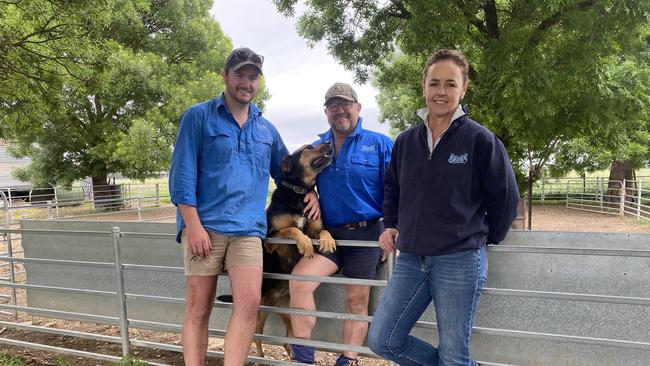
It has to be driven by the older generation, you must have 100 per cent buy-in by all family members and if you go into it thinking it’s going to be a breeze, you are kidding yourself.
Russell family, Rutherglen
In summing up succession, Rutherglen mixed farmer Andrew Russell is matter-of-fact.
“It has to be driven by the older generation, you must have 100 per cent buy-in by all family members and if you go into it thinking it’s going to be a breeze, you are kidding yourself,” he said.
“But it’s worth doing because in our case, we’ve been through some trying times but our extended family unit is as strong as it’s ever been.”
Andrew joined wife Sue’s family farming business in 1997. Sue’s parents offered Andrew and Sue the opportunity after Sue’s grandfather passed away and the business partnership between her father and uncles dissolved and realigned.
This gave Andrew and Sue the chance to help grow the mixed farming, seed production and seed cleaning-processing businesses over the next 27 years.
At one point, there were five families being supported by the operation: Sue’s parents, her uncle and aunt, plus her two sisters and their husbands.
In terms of succession, it couldn’t be more complex and while the outcome was ultimately positive, the road was far from easy.
The family had multiple attempts at succession before hiring a consultant. Private interviews were conducted, allowing individuals to safely voice their wishes and needs, future goals and where they felt they added value to the family business.
“The facilitators drew up a summary and a plan. It was nothing like what we were all looking for but it was a starting point and until you have that, you have nothing - it is pivotal for anything to progress,” Andrew said, adding the plan was later modified into an amicable agreement.
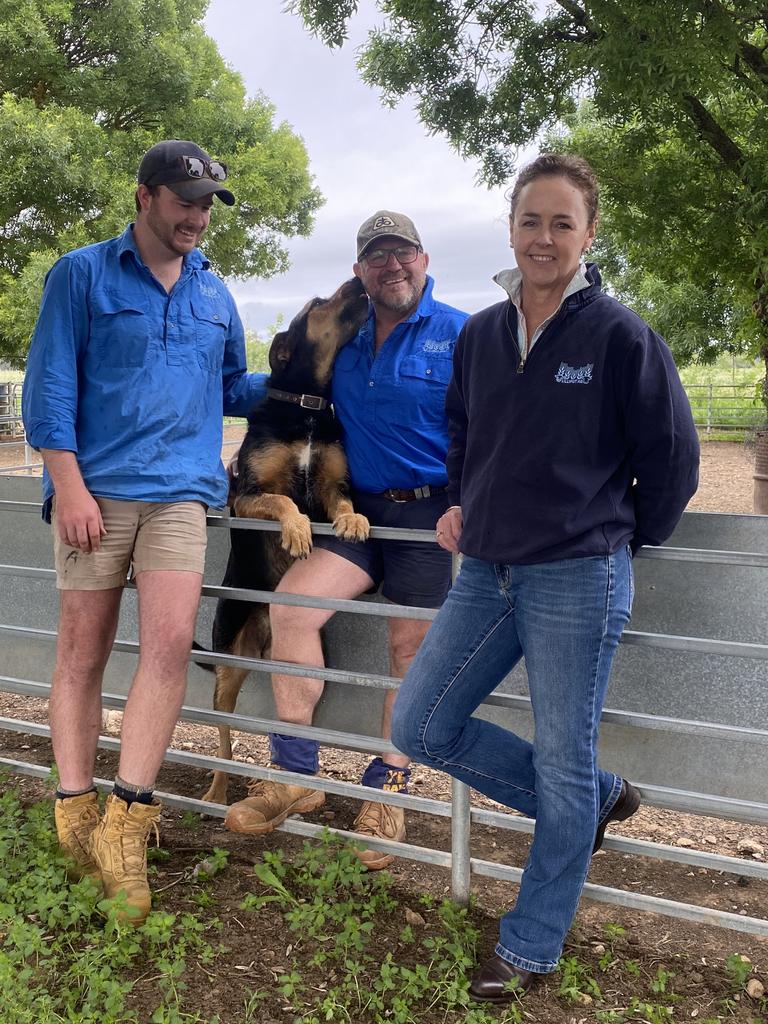
Sue’s sister exited the business; her parents, uncle and aunt were progressively bought out over time so they could retire; and two families remained partners in the operation. The transition to the next generation of children is now being openly discussed.
“The thing we learnt is it is hard to be 100 per cent equal. Fair and equal are two different things,” Andrew said.
“It is confronting and emotional and family can be not so worried about what they are going to get but what they will lose, and that is important to note.”
Andrew said the hardest part was making the call to engage a consultant.
“That very first meeting where you are bearing your soul – you are risking the relationship with your family,” he said.
“That was super challenging but once we got into it we realised we were all here not just for ourselves but as a family to work something out so that we could still have Christmas together.”
What Andrew thought would be the best, fairest and most equal outcome for everybody turned out to be different to the ultimate outcome - which was actually better, he said.
“Coming together and having those tough discussions has to be facilitated and the facilitator has to be very good at what they do,” Andrew said.
His advice to others – start succession as early as possible, be flexible, but set timelines.
“Being unclear about the future is the driver of all evils. It causes friction, stress and family unrest,” he said.
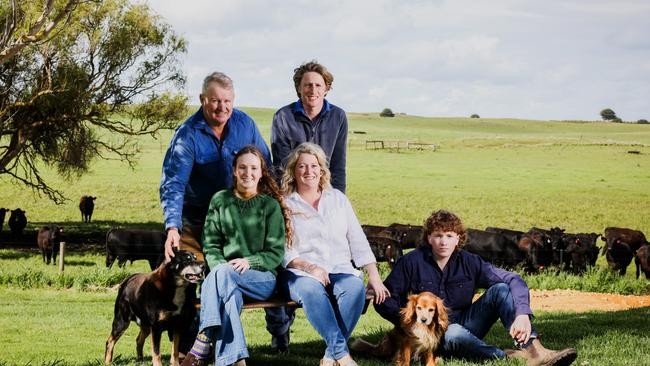
Graham family, Yambuk
Once Yambuk beef producer Andrew Graham stopped trying to make farm succession happen how he had imagined, more opportunities arose.
“It wasn’t easy to do but once I threw the ‘this is not fair on me’ out the window, it helped,” Andrew said.
Following the death of his father, Andrew’s family had multiple failed attempts at succession. No agreement could be determined so the 360ha property was leased out for 15 years.
Andrew worked for the private investor who was leasing the farm and was able to remain living there with wife Kerrie and their three children.
“Working for a private investor you look at things differently compared to a family show,” Andrew said.
“I did a leadership course through my work and ran into farm succession consultant Mike Stephens and had a chat with him and then I approached Mum and said, ‘let’s try again’.”
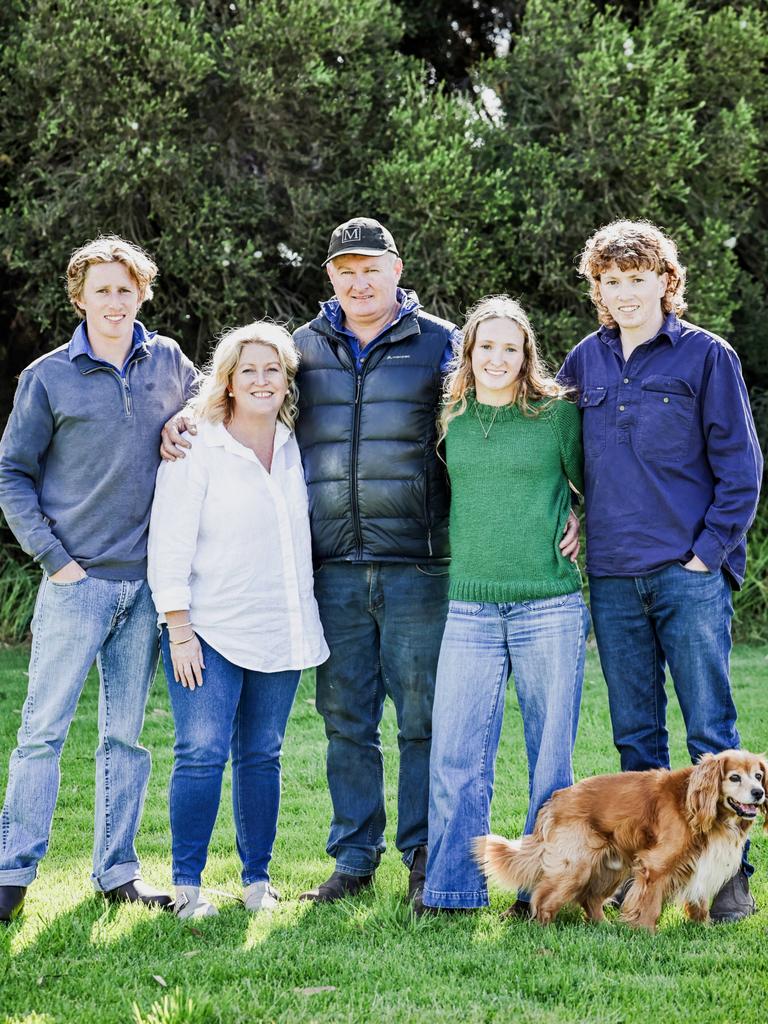
The family “drew a line in the sand” and valued everything equally at commercial rates and made an agreement from there. Mike helped facilitate the process and was able to complete a successful transition within three years.
“Right from the word go, Mike said you’ve got to give something. If it hurts you a little bit to give something up, that’s about when it’s fair for everyone – and that’s how it did play out,” Andrew said.
“The way he was able to do it – my mum was looked after, my sister doesn’t feel like she has missed out and I feel like I have given up a fair bit more but I was happy with the result.
“We came to an agreement and everyone has remained intact.
“I thought at the time we had to pay a lot of money for our land but it ended up working out well. If I didn’t let go, the land would have kept going up and then to do another valuation in 10 years I would have been in another whole world of hurt. So it was a win-win for all.”
McEachern family, Strathdownie
Andrew McEachern’s farm succession story is reflective of most - positive in some ways, negative in others.
The McEachern family has been farming livestock at Strathdownie in the Western District for five generations, and three generations are still involved today.
This includes Andrew and Priscilla, and their three children; Andrew’s parents; and his sister, her partner and their daughter.
Andrew and Priscilla own the business and operationally run the 1256ha property but all adult parties have an interest in the land ownership, are trustees or trust beneficiaries.
The McEacherns used an independent succession planner and found off-farm meetings worked best.
“Ours was a work in progress to get to the table, then a process of establishing a team that suited all parties – solicitors, accountants, bank managers – and not necessarily using the existing professionals that had previously been involved in the business,” Andrew said.
“Challenges included recognising that having the meetings was not the actual doing of the succession planning process; how to quantify and give due regard to the understandable depths of emotional attachment to land and many other things, and that there are varying degrees of being ‘ready’.
“We were lucky and well served in a sense that everybody was more concerned about each other being well looked after, more so than themselves. But despite that goodwill, the depths of emotion evoked by the process still emerged at times.”
Andrew’s tip to others was to treat the process as a way of learning about each other rather than expecting things to follow a preconceived “logical” path.
He said the best intentions may not correspond with a different generations’ perspective.
“As we did, I think getting a team of professionals together that have been appointed by all parties gives everyone ownership of the process,” Andrew said.
“What’s fair is not necessarily even, is a concept that can be challenging. If you cut a coffee shop in half you don’t have a viable business, and the same is true with many farms. I think the focus needs to be on opportunities that are provided by the managed handover of assets across generations.”
MAKE A START
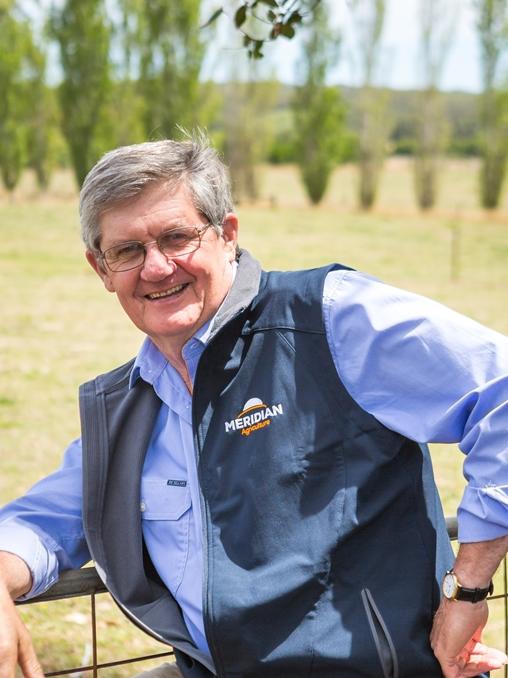
The first step towards succession was appointing an external facilitator experienced in farm succession.
“Many accountants and lawyers who purport to prepare succession plans ignore many of the ‘people issues’ and create business structures which are difficult to undo and are sometimes tax driven,” Mike said.
“Often the lawyer and accountant will take advice from their client – usually the older generation – who supports or suggests the proposed plan, but without the younger generation being consulted, let alone having the opportunity to understand or agree to the plan.
“The likelihood of a succession plan being accepted and adopted by the family is increased when a team of professionals is assembled that not only considers farm management, people and relationship issues, but also the legal and accounting aspects of the plan. Each of these professionals operating in isolation from the others carries a degree of risk.”
“Somebody is going to have to find a solution and it might be after they (the parents) are dead. Doing nothing is the worst thing you can do,” Mike said.
“The more you’ve got in your will, the more danger there is it will be challenged.”
THE LEGAL CHOICE
When engaging a lawyer for farm-related matters, there were two main things to consider, SLM Law director Meagan Compton said.
Firstly, their experience in both succession planning and rural law and, secondly, finding someone you felt at ease with.
“Our farming clients are usually matter-of-fact people and have a low tolerance for legal jargon,” Meagan said.
“The most effective lawyers are the ones who use plain English and who go the extra mile to make sure you understand precisely what you are signing.”
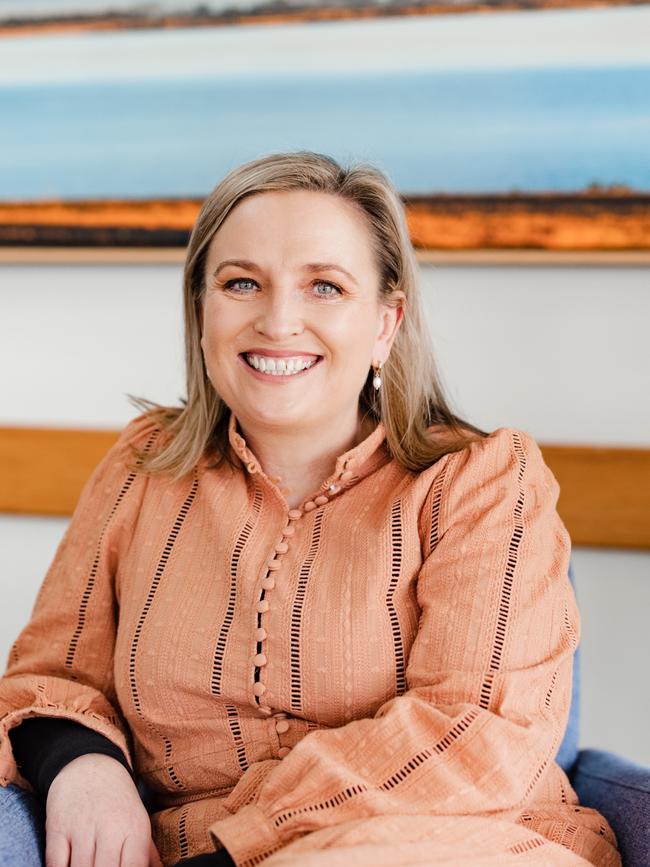
Legal requirements often involved drafting wills; consideration of trading and ownership structures and who had control of assets; transferring farmland, livestock and farming plant and equipment; thoughts about who carried the risk of running the business and who got to benefit from the profit; how loans and credit accounts might be secured; drafting family agreements and farm leases; and making sure there were no unintended tax or stamp duty consequences.
Lawyers should work with families to break down the process into smaller, more achievable steps so the bigger project didn’t feel so daunting.
COST BLOWOUT BLOCK
Costs associated with farm succession can range from $2000 to $20,000-plus.
A good place to start is a rural financial counsellor – the service is free, local, independent and confidential.
AgBiz Assist farm business economist and rural financial counsellor Jim Moll said enquiries about farm succession had become much more frequent recently.
“There has been so much interest in it that has stemmed from the price of agricultural land in the past few years and farmers wondering how they will pass it on in an equal fashion,” Jim said.
Rural financial counsellors don’t act as consultants but can help farmers understand their financial situation and refer succession specialists.
“That initial consultation can really help farmers understand what the map might look like in front of them without costing a bucket load of money,” Jim said.
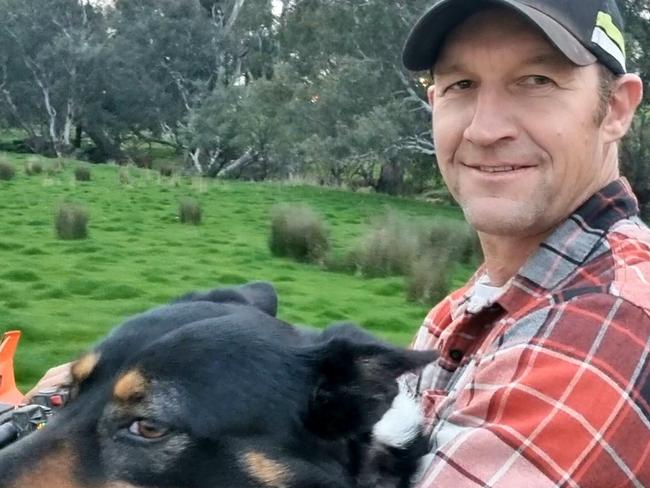
TOP 5 FARM SUCCESSION TIPS
1. Engage an independent consultant to work with your accountant and lawyer to facilitate the process.
2. Start as early as possible.
3. Be clear with wants, needs and wishes.
4. Set clear timelines for transition phases.
5. Be flexible, create a fluid document that allows for adverse changes such as accidents, deaths or marriage breakdowns.

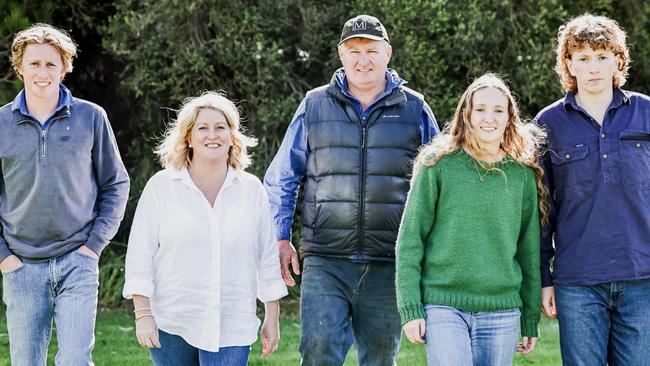
Add your comment to this story
To join the conversation, please log in. Don't have an account? Register
Join the conversation, you are commenting as Logout
CFA court battle looms
TODAY looms as D-Day for the Country Fire Authority as its new board prepares to sign off on a controversial new workplace deal for firefighters.